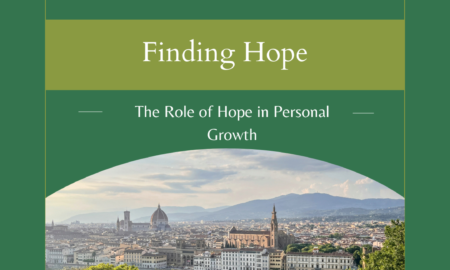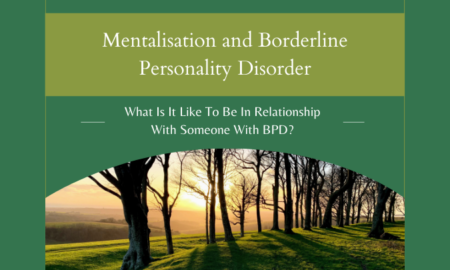Dopamining – Chasing the High

What is Dopamine?
Dopamine is one of the brain’s “feel good” neurotransmitters. It induces feelings of excitement, motivation, aliveness and gratification. When we engage in certain behaviours, dopamine is released from where it is produced in the brain and enters our bloodstream to give us a feeling of satisfaction and reward.
Why Do We Need It?
From an evolutionary perspective, a release of dopamine is what incentivises us to do the things that are good for our survival, like eating, drinking and reproducing. Human beings are hard-wired to be reward-seeking and a healthy level of dopamine makes us feel happy, focused, alert and motivated.
‘Dopamining’
It may be a word right out of an urban dictionary, but the concept of “dopamining” is being increasingly used to describe the thrill of doing things that lead to a release of dopamine.
So Is Dopamine Addictive?
Dopamine itself is not addictive, but the feeling we get when we experience a flood of dopamine lights up the reward centres of the brain and compels us to want it more. The strong memory of the pleasure we felt as a result of a dopamine release is what we are focusing on and what we continue to seek.
Excessive repeated releases of dopamine can also over-stimulate our brain. In small doses this isn’t unhealthy, but arguably, some of the reward-seeking behaviours are what can be define as unhealthy and this is where things get complex.
Our iPhones for example, are like mini dopamine factories – pumping out little highs with each pick up. Modern phones have been designed with reward-seeking behaviour in mind and you just have to watch The Social Dilemma on Netflix to understand the magnitude of the problem. While it is not the phone itself that is addictive, the plethora of social media sites and apps is what has given us a positively endless supply of social stimuli in the thumbs up, likes, happy faces or messages that we receive. And, it’s not just the positive reactions we seek, it may be the negative reactions too. It can rapidly become a case of posting anything, even posting those things we know are just ideal to set us up for an online roasting because all we’re after is a response. Neuroscientists have shown that these positive and negative social stimuli activate the same neural reward pathways in the brain as a hit of cocaine would give us.
Being ‘addicted to your phone’ is just one example of how this can work. Other activities such as playing video games, drinking alcohol or infidelity can all behaviours that are based on this same reward system.

Where It Can Go Wrong
Regularly chasing a dopamine high off the back of an unhealthy behaviour can have serious implications for many areas of our life. Studies have shown there is a link between dopamine and compulsive behaviours and at an extreme level, continued and excessive dopamine hits can result in damage to the brain. Brain pathways are altered and the brain gets used to a new level of dopamine tolerance meaning that we are less sensitive to its impact. As we no longer get the same high, we may be compelled to seek increasingly unhealthy behaviours to achieve the same feeling. In the instance of alcohol use, this may look like drinking more and more. Even low dose alcohol is known to increase the release of dopamine.
In the case of infidelity, the brain’s self-control centre short-circuits and you may someone escalate from emotionally cheating to repeated infidelities or even engaging in risky sexual deviances. The thrill of the chase can be so intense it can sometimes look like a sex addiction (but that’s another blog post altogether). It’s not the sex that someone is addicted to though, it’s the dopamine release they are seeking and the sexual activity, or the chase at least, is just a way to obtain the dopamine rush.
Ultimately, the downfall is when it leads to poor impulse control and someone finds it impossible to resist certain behaviours. Instances of “It was just one more drink….” or relationships plagued by an incessant wave of infidelities rationalised as “just sexual banter” can lead to chronic problems in maintaining self-control that ends up costing someone dearly. Not only is there an impact to oneself in increases in stress, anxiety and depression and poor sleep quality, there is also collateral damage experienced in disruptions to personal relationships or in strained or dysfunctional family dynamics.
When To Get Help
If poor impulse control is something you recognise in yourself or in someone close, get help. There is work that can be done around identifying triggers and changing patterns in thinking, feeling and behaviour. Find a therapist you can talk to and one you feel you can work well with. Therapy can help improve levels of self-control and support someone in developing healthier coping strategies.
Photo (social media) by Karsten Winegeart on Unsplash
Photo (heart) by Marah Bashir on Unsplash
You may also be interested in...

Finding Hope
Why Hope Matters on Difficult Days This morning the Happiful magazine newsletter landed in my inbox and the title of the newsletter was “It’s OK to look for hope”. It…

In a Relationship with Someone with BPD?
Being in a relationship with someone who has Borderline Personality Disorder (BPD) can be emotionally intense and, at times, confusing. You may experience moments of deep connection, only to be…

New Year, Fresh Start: How Reflection Fuels Personal Growth
As the New Year begins, many of us feel a renewed sense of purpose, setting resolutions that reflect our hopes for personal growth and change. While it’s true that committing…

The Value of Downtime
In our fast-paced world, where productivity and constant connectivity are often celebrated, the concept of downtime can feel counterintuitive or even indulgent. However, taking time to rest and recharge is…

Improve Your Mental Strength
Ever wondered why some people seem to bounce back effortlessly from life's curveballs while others struggle to regain their footing? The secret lies in mental strength – that intangible power…

Transactional Analysis and the Ego State Model of Personality
The ego state model of personality is a central concept in Transactional Analysis. As a practitioner of Transactional Analysis, the ego state model is one I often use in my…
Ready to Make a Change? Book an Initial Consultation Today
If you have any questions at all about therapy or would like to make an appointment, get in touch. I will usually be able to respond to you within 24 hours.
